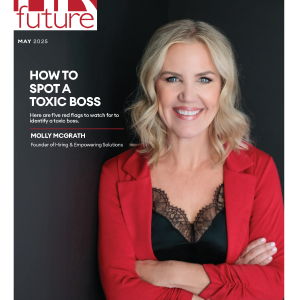A great culture is key to hiring – and retaining – the best talent.
When you are positioning your company to be attractive in the marketplace to both new hires and help retain your existing employees, what are you thinking about? Are you thinking about your Employee Value Proposition (EVP), the financial rewards you can offer, the benefits packages that are in place and the office location and its perks?
These are the standard “go to” aspects most Human Resources functions are investing in so that they remain competitive in the marketplace, and of course, they are important aspects to be paying attention to. However, there is a secret ingredient which is often overlooked when it comes to hiring and retaining top talent. And that ingredient is your company culture.
Company culture
Put simply, a company’s culture is typically unique to each company (it is really hard to copy, unlike compensation and benefits packages or office perks) and is the way that people within that company do things around there, especially when no one is looking. Culture is on display in the environment where people work and is lived out through what people do (and don’t do) in their daily interactions in the workplace.
Culture is an interesting word, which finds it root in the Latin word cultus – which translates as “to care” in modern English. From that root meaning, you can see that culture is absolutely all to do with your people, and if you get it right, I assure you that your efforts to retain talent and recruit new talent will begin to thrive.
However it isn’t just my opinion that culture is critical, it is in fact the response of over 120,000 job seekers who were interviewed by TopResume, a leading resume writing firm, and were asked what the top factor was for them when considering a new job. Overwhelmingly, “company culture” came out on top.
Irrespective of who you ask and what data source you look at, everything says the same: for the past five years, the importance of culture has been the most important, or one of the most important, focus for job seekers when considering who to work for.
Candidates are now trawling websites such as Glassdoor and Indeed, which offer insights into what is going on inside of a company. Glassdoor, as of 2021, had around 50 million reviews of companies from jobseekers through to existing employees in over one million different companies around the world.
The chances are that people are commenting publicly on these sites about your company culture, the leadership that is on offer, and the employee value proposition. These websites aggregate all of the feedback and rank companies based on their culture and their employability in various indexes. They also take salary information and various demographic filters into account, to really help job seekers find the workplaces they align best with.
Retention by culture
But, of course a great culture doesn’t just help in recruiting people, it also helps to retain people. Glassdoor undertook a study to see what affected employee retention rates and they found that companies with strong company cultures could boost their retention rates by up to 65% compared to companies without a strong, positive culture.
Logically, it makes sense when you think about it – people want to work in places where they are respected, have fun, are treated as individuals, have the chance to grow and learn, and can contribute (all signs of a great culture).
One of the best case studies here is perhaps the case of Southwest Airlines in the United States. We all know that it is very hard to compete at a sport, or at music, with someone who started to hone their craft at the age of two years old and has spent over ten thousand hours practising. Well, when it comes to business, it is very hard to compete with people who love what they do and are happy and engaged in the workplace.
Create a culture of fun
Having fun at work is critical and can only be achieved when cultures of fun have been deliberately built and fostered within the workplace. Southwest Airlines has wonderful business results and is one of the most innovative airlines out there – and they have been able to achieve those results because they ingrained fun deep into the company’s culture and operations.
A key business innovation which Southwest led with was their ability to have their planes on the ground for the least amount of time possible before sending them back on their way in the skies again. They focused on operational excellence and efficiency and could send planes back into the sky in around ten minutes at their fastest – this meant they could make more money and pass lower air fares onto their customers, which led to repeat customers and loyalty.
However, turning a plane around in just ten minutes is no mean feat and definitely a difficult task. It requires that the captains and pilots of a plane chip in and help remove rubbish from the seats, and baggage handlers to do their very repetitive heavy work at breakneck speeds. Everyone must be in sync with one another. I have taken the time to watch them go about their work and something becomes very clear, very fast.
The people are having fun at work. They are being driven by a hard, near impossible challenge to turn the plane around and they understand that their work – however hard it may be – makes it possible to serve their customers and offer low prices.
This design, as I say, was on purpose. Southwest promises to all employees that, from the first day they join the company until the day they leave, they will “express a fun-loving attitude and embrace the Southwest family” (amongst other things that make up their culture). What do you think their Glassdoor ratings look like? What do you think their employee retention rates are compared to the rest of the market?
So, when it comes to your biggest challenges – how to attract and recruit new talent, and how to retain existing talent, try to take inspiration from these insights and focus on building your culture.
As I set out in my new book The Culture Advantage, culture is the only sustainable path to success, and is your competitive advantage because culture is like software: people cannot replicate it so easily – unlike your business strategy or your compensation plans, which could be classed as the hardware and can be easily reverse engineered.
Really try to double down on building a great culture if you want to become an employer of choice in the market. I wish you the best of luck.
Daniel Strode is a culture and innovation expert based in Madrid Spain. He is the author of The Culture Advantage (Kogan Page, £19.99).













